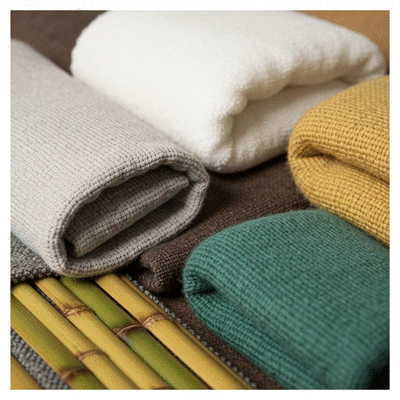The sustainable fashion movement is not a fleeting trend; it's an urgent response to the environmental and social challenges we face. As we look to the future, understanding the principles of sustainable fashion can empower us to make conscious choices that benefit both our wardrobes and the planet.
What You Will Learn
- Sustainable fashion prioritizes eco-friendly materials, ethical production, and longevity in clothing.
- The year 2025 is set to be a pivotal moment for sustainable practices in the fashion industry, driven by consumer demand and regulatory changes.
- Ethical clothing brands lead the charge in promoting sustainability through innovative practices and community engagement.
- Conscious consumerism can reshape the fashion landscape by encouraging brands to adopt ethical and sustainable practices.
- Understanding the negative environmental impacts of fast fashion is crucial for making informed and responsible fashion choices.
Sustainable Fashion: Key Principles and Impact
An overview of the core principles defining sustainable fashion and its profound economic and environmental impacts. For a deeper dive into how individual actions can make a difference, explore our guide on How to Start Your Sustainable Fashion Journey.
What Defines Sustainable Fashion?
- Eco-Friendly Materials: Organic, recycled, biodegradable.
- Ethical Production: Fair wages, safe conditions.
- Longevity & Quality: Durable clothing.
- Transparency: Open sourcing processes.
Economic Impact & Policy Influence
- Job Creation: Local communities benefit.
- Innovation Investment: New materials, technologies.
- Increased Awareness: Brands held accountable.
- Policy Changes: Incentives, regulations, education.
Impact of Fast Fashion
- Waste Generation: Millions of tons of textile waste.
- Water Pollution: Harmful chemicals in production.
- Carbon Emissions: Significant greenhouse gases.
Your Role in Sustainable Fashion
- Educate Yourself: Stay informed about brands.
- Support Local: Shop from eco-friendly local businesses.
- Engage in Discussions: Share knowledge with others.
- Shop Second-Hand: Reduce waste, circular economy.
Understanding Sustainable Fashion Trends for 2025
As we dive into the world of sustainable fashion, it's essential to recognize that this movement isn't just a trend—it's a necessary evolution in how we approach clothing and consumption. Sustainable fashion is about creating eco-friendly choices that minimize harm to our planet while promoting ethical practices across the industry. But what truly defines sustainable fashion in the modern era? Let's explore this together!
At its core, sustainable fashion focuses on environmentally friendly materials, ethical labor practices, and the longevity of clothing. This means prioritizing quality over quantity and embracing innovative solutions that encourage us to think critically about our wardrobe choices.
What Defines Sustainable Fashion in the Modern Era?
Sustainable fashion can be characterized by several key principles that resonate with consumers today. Here's a quick look at what sets it apart:
- Eco-Friendly Materials: Using organic, recycled, or biodegradable materials.
- Ethical Production: Ensuring fair wages and safe working conditions for all involved.
- Longevity and Quality: Promoting durable clothing that stands the test of time.
- Transparency: Brands openly sharing their sourcing and manufacturing processes.

By understanding these components, we can begin to make more informed choices about the brands we support and the items we buy!
Why 2025 is a Pivotal Year for Eco-Friendly Fashion Choices
With the fast-approaching year of 2025, we are on the brink of significant change within the fashion industry. This year is projected to be a turning point where brands and consumers alike will prioritize sustainability more than ever. Why is that?
- Increased Awareness: Social media and advocacy campaigns have heightened awareness of environmental issues.
- Consumer Demand: More shoppers are prioritizing sustainable practices, pushing brands to adapt.
- Regulatory Changes: Governments are beginning to implement stricter regulations regarding environmental impact.
As we look forward, I believe 2025 will be a year where eco-conscious choices become the norm, not the exception! The momentum is building, and it’s thrilling to witness. For more insights on upcoming shifts, see our article on The Future of Sustainable Textiles.
The Role of Ethical Clothing Brands in Promoting Sustainability
Ethical clothing brands play a critical role in the sustainable fashion landscape. They set examples for others by prioritizing environmental and social responsibility. Here are a few ways these brands contribute:
- Innovative Practices: Many are leading the charge with groundbreaking materials and manufacturing methods.
- Community Engagement: They often support local communities and promote fair trade.
- Educational Initiatives: Many brands focus on educating consumers about the impact of their choices.
At The Stone Builders Rejected, we aim to highlight these brands and share their stories, helping consumers make informed decisions about their purchases!
Pro Tip
Did you know? By choosing to shop second-hand or vintage clothing, you not only save money but also significantly reduce the demand for new production, which is a major contributor to environmental degradation. Embrace the thrill of treasure hunting while making an eco-friendly choice!
Reflecting on the Future of Sustainable Fashion
Sustainable fashion is more than just a trend; it represents a profound shift in how we think about clothing and its impact on our planet. As we look toward the future, it’s important to consider how our choices in fashion can affect the economy, drive policy changes, and inspire activism. Each of these elements plays a crucial role in promoting a more sustainable world.
The economic impact of sustainable fashion choices is profound. As consumers increasingly prioritize eco-friendly options, brands are responding with innovative practices that not only benefit the environment but also enhance profitability. By supporting sustainable brands, we can drive demand for practices that reduce waste and respect labor rights.
The Economic Impact of Sustainable Fashion Choices
When we choose sustainable fashion, we are also making economic choices that can reshape industries! Here are some key points to consider:
- Job Creation: Eco-conscious brands often create jobs within local communities, promoting economic growth.
- Investment in Innovation: As brands focus on sustainability, they invest in new materials and technologies, paving the way for future advancements.
- Increased Consumer Awareness: With more consumers opting for sustainable options, companies are held accountable for their practices, encouraging a shift toward ethical business models.
As the market continues to shift, we can expect to see more brands adopting sustainable practices to attract consumers. This shift can ultimately lead to a healthier economy where sustainability is the priority, not an afterthought.
Policy Changes and Their Influence on Consumer Buying Trends
Government regulations and policies play a significant role in shaping the landscape of sustainable fashion. As initiatives promoting eco-friendly practices gain momentum, they lead to changes in consumer behavior. Here are some key policy trends:
- Incentives for Sustainable Practices: Governments are offering grants and tax incentives for companies that adopt sustainable practices.
- Standards and Regulations: New laws are being implemented to regulate waste and emissions, urging brands to comply.
- Consumer Education Programs: Many local governments are educating consumers about the benefits of sustainable fashion, making informed choices easier.

These policy changes encourage consumers to support brands that align with their values. As a result, we are witnessing a significant shift in buying habits toward ethical choices that prioritize the planet.
Fashion Activism and the Push for Sustainable Practices
Fashion activism is on the rise! Individuals and organizations are advocating for practices that promote sustainability and ethical labor rights. This movement empowers consumers to take a stand against fast fashion and demand transparency. Here are some ways activism is influencing sustainable practices:
- Awareness Campaigns: Activists are using social media to raise awareness about the negative impacts of fast fashion.
- Collaborations with Brands: Many activists partner with brands to create limited-edition collections that emphasize sustainable practices.
- Community Engagement: Fashion shows and events focused on sustainability are becoming more common, allowing consumers to engage with eco-friendly brands.
As someone who values transparency and integrity in fashion, I encourage readers to follow these movements and consider how they can contribute to positive change. Together, we can build a future where sustainable fashion isn't just a choice but a way of life. Learn more about the ethical implications of fashion choices in our detailed post on Ethical Fashion and Supply Chains.
Taking Action: Your Role in Sustainable Fashion
As consumers, we hold the power to influence the future of sustainable fashion! By making conscious choices, we can contribute to a more ethical and eco-friendly industry. Here’s how you can make a difference:
How to Contribute to Sustainable Fashion Movements
Every action counts! Here are some simple yet impactful steps you can take:
- Educate Yourself: Stay informed about brands and their sustainable practices.
- Support Local Businesses: Choose to shop from local, eco-friendly brands that prioritize sustainability.
- Engage in Discussions: Share your knowledge about sustainable fashion with friends and family to raise awareness.
Being proactive in these areas can encourage others to consider their fashion choices and promote a more sustainable landscape.
Encouraging Ethical Practices Through Conscious Consumerism
Conscious consumerism is about making informed decisions that align with your values. By choosing to support brands that prioritize ethical practices, we send a message to the industry. Here’s how to practice conscious consumerism:
- Research Brands: Investigate companies’ practices and ethical claims before making a purchase.
- Shop Second-Hand: Buying used clothing reduces waste and promotes a circular economy.
- Advocate for Change: Use your voice to encourage brands to adopt more sustainable practices.
By participating in conscious consumerism, we can collectively drive change in the fashion industry, pushing for practices that respect both people and the planet.
Understanding the Impact of Fast Fashion on the Environment
Fast fashion has a significant environmental impact, from resource depletion to pollution. Understanding these effects is crucial in fostering a sense of responsibility. Here are some consequences of fast fashion:
- Waste Generation: The fast-fashion industry contributes to millions of tons of textile waste annually.
- Water Pollution: The production of synthetic fabrics often involves harmful chemicals that pollute water sources.
- Carbon Emissions: Fast fashion contributes significantly to greenhouse gas emissions due to its manufacturing processes.
Being aware of these issues can motivate us to make better choices and advocate for a fashion industry that prioritizes sustainability. Together, we can reshape the future of fashion, creating a world where style and sustainability go hand in hand!
Recap of Key Points
Here is a quick recap of the important points discussed in the article:
- Eco-Friendly Materials: Sustainable fashion utilizes organic, recycled, or biodegradable materials.
- Ethical Production: Ensures fair wages and safe working conditions for all workers involved.
- Longevity and Quality: Focus on durable clothing that lasts over time.
- Transparency: Brands should openly share their sourcing and manufacturing processes.
- Consumer Demand: Increased focus on sustainability is pushing brands to adapt to eco-friendly practices.
- Policy Changes: Stricter regulations are influencing brands and consumers towards sustainable choices.
- Fashion Activism: Movements advocating for sustainable fashion are rising, encouraging consumers to make informed choices.
- Conscious Consumerism: Researching brands and opting for second-hand clothing promotes sustainability.
Frequently Asked Questions About Sustainable Fashion
What are the core principles of sustainable fashion?
Sustainable fashion is defined by several key principles: using eco-friendly materials (organic, recycled, biodegradable), ensuring ethical production (fair wages, safe working conditions), promoting longevity and quality in clothing, and maintaining transparency in sourcing and manufacturing processes.
Why is 2025 considered a pivotal year for sustainable fashion?
2025 is anticipated to be a turning point due to increased environmental awareness, growing consumer demand for sustainable products, and the implementation of stricter governmental regulations regarding the fashion industry's environmental impact.
How do ethical clothing brands contribute to sustainability?
Ethical clothing brands lead by example through innovative practices (groundbreaking materials and methods), community engagement (supporting local economies and fair trade), and educational initiatives that inform consumers about their choices' impact.
What is conscious consumerism and how does it help sustainable fashion?
Conscious consumerism involves making informed purchasing decisions that align with one's values. By researching brands, choosing second-hand items, and advocating for change, consumers can collectively drive the fashion industry towards more ethical and sustainable practices.
What are the main environmental impacts of fast fashion?
Fast fashion significantly contributes to environmental degradation through massive waste generation (millions of tons of textile waste), water pollution from harmful chemicals used in production, and substantial carbon emissions due to manufacturing processes.






